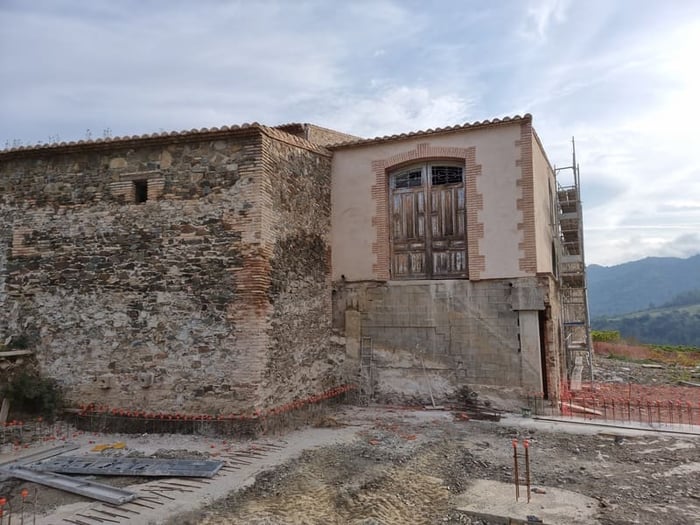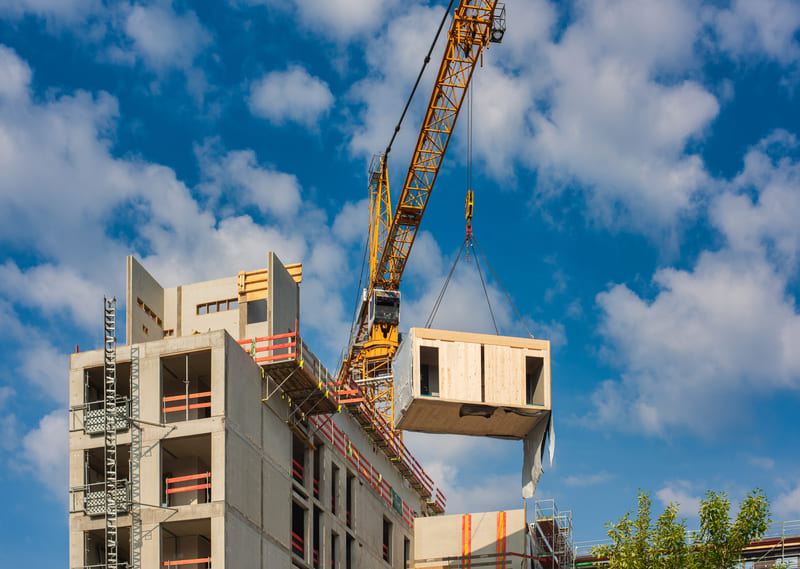Sustainability is not easy to measure. There are numerous variables at play to be able to define if something is sustainable. Hiring expert companies that have been involved in various projects can help to make strategic decisions aligned with sustainability. In this article we explain what a sustainability consulting firm is and how it works, what a sustainability consultant does, their services and usefulness in a building project.
What is Sustainability Consulting? What does it consist of?
A strategic consulting company specialising in sustainability is an independent company that offers solutions for improving sustainability and energy efficiency in the field of building and urban environment. To this end, it has professional certifiers who provide objective proposals based on the needs of each project.
The certification process starts with a consulting project in order to set sustainability objectives and strategies for action. The following are the requirements and are followed up during construction to verify compliance. The certification will -optionally-be carried out in two phases: project certification and certification of the finished building.

One of the objectives of consulting in sustainability is to improve energy efficiency in buildings.
Sustainability consulting assesses all processes that influence the sustainability strategy throughout the project's life cycle, integrating environmental, economic and social aspects. Its aim is to propose alternatives and present viable solutions that ensure optimum performance, minimising investment and improving the sustainability of the project.
What does a sustainability consultant do? Services
A sustainability consultant provides advice and helps to integrate the sustainability strategy into the building project, in order to reduce the impact on the environment and improve its energy efficiency. The aim is to achieve buildings with a low environmental impact while at the same time ensuring the economic viability of the project.
Thus, the functions of sustainability consultants are:
- Advising the client in an objective and direct manner, with impartiality on the most appropriate measures to improve sustainability. These experts provide guidance in determining sustainability objectives, choosing the most appropriate sustainable rating system for the project and instructing on all relevant criteria to achieve certification.
- Accompanying during the decision-making on sustainability issues that influence the construction process. Consulting in sustainability provides cross-cutting proposals and solutions to meet the client's needs, with the client, however, being the final decision-maker.
- Providing a neutral view on the sustainable strategy of the project, guaranteeing results in line with the established objectives.
- Ensure greater control over the execution of tasks, prevent mishaps and reduce costs. Finally, verify the results obtained by means of an environmental quality seal. The most used sustainable building certificates or green seals are: LEED (USA), BREEAM (UK), WELL (USA), VERDE (Spain) and DGNB (Germany).

Benefits of consulting in sustainability
The sustainability certification is voluntary. Its purpose is to reduce the environmental impact of buildings considering their entire life cycle. But in addition, obtaining a sustainable building certification grants other important benefits, among which the following stand out:
1. Savings
The initial costs are equal to or lower than those of conventional buildings. In addition, sustainable buildings have lower management costs due to energy savings -energy savings of up to 80 % compared to a conventional building, as well as in water, maintenance and repair, and higher capacity for adaptation and resilience.
2. Competitive advantage
Obtaining a sustainable certificate will mean that the company is recognised as a pioneer. Environmental quality is a differentiating element that increases the competitiveness of architectural products. Green assets are highly valued and preferred by socially responsible companies and their employees.
3. Investment profitability guarantee
The sustainable building certification is an indicator of quality, which increases the attractiveness of the property, attracts investors and can increase its value. Buildings with a sustainable certificate obtain higher returns than buildings that are not.4. Improvement of health and quality of life
A sustainable building designs inclusive spaces and means greater wellbeing and quality of the indoor climate. This, in turn, motivates its occupants to continue healthy and environmentally respectful behaviours.
5. Alignment with the SDGs and other sustainability objectives
Certifying a building with a sustainable seal ensures that it complies with several of the Sustainable Development Goals of the United Nations set for 2030. It is also in line with the European Green Pact targets for 2030, as well as with EU's Climate Neutrality Strategy for 2050. Compliance with these international sustainability objectives will also enable the building project to be eligible for green financing.
Consulting firms specialising in sustainability provide an external view to the whole design process, which enriches it, avoids setbacks and provides new ideas. Together with a sustainability consultant, who advises, accompanies and verifies the results, a sustainability consulting service sets the course for the future. To reduce the environmental footprint and move towards the green transition.


